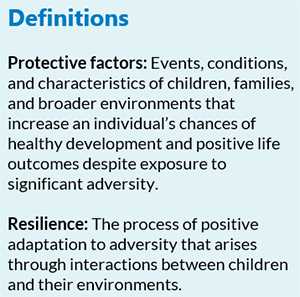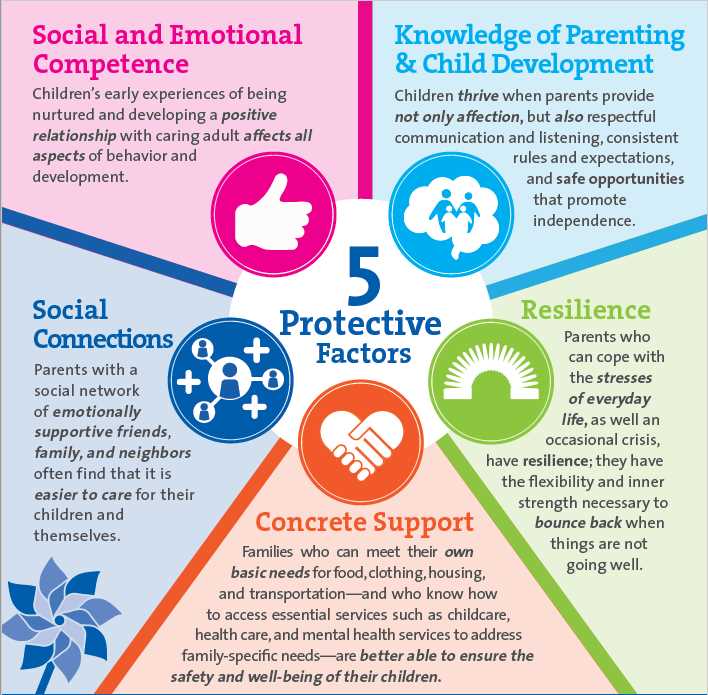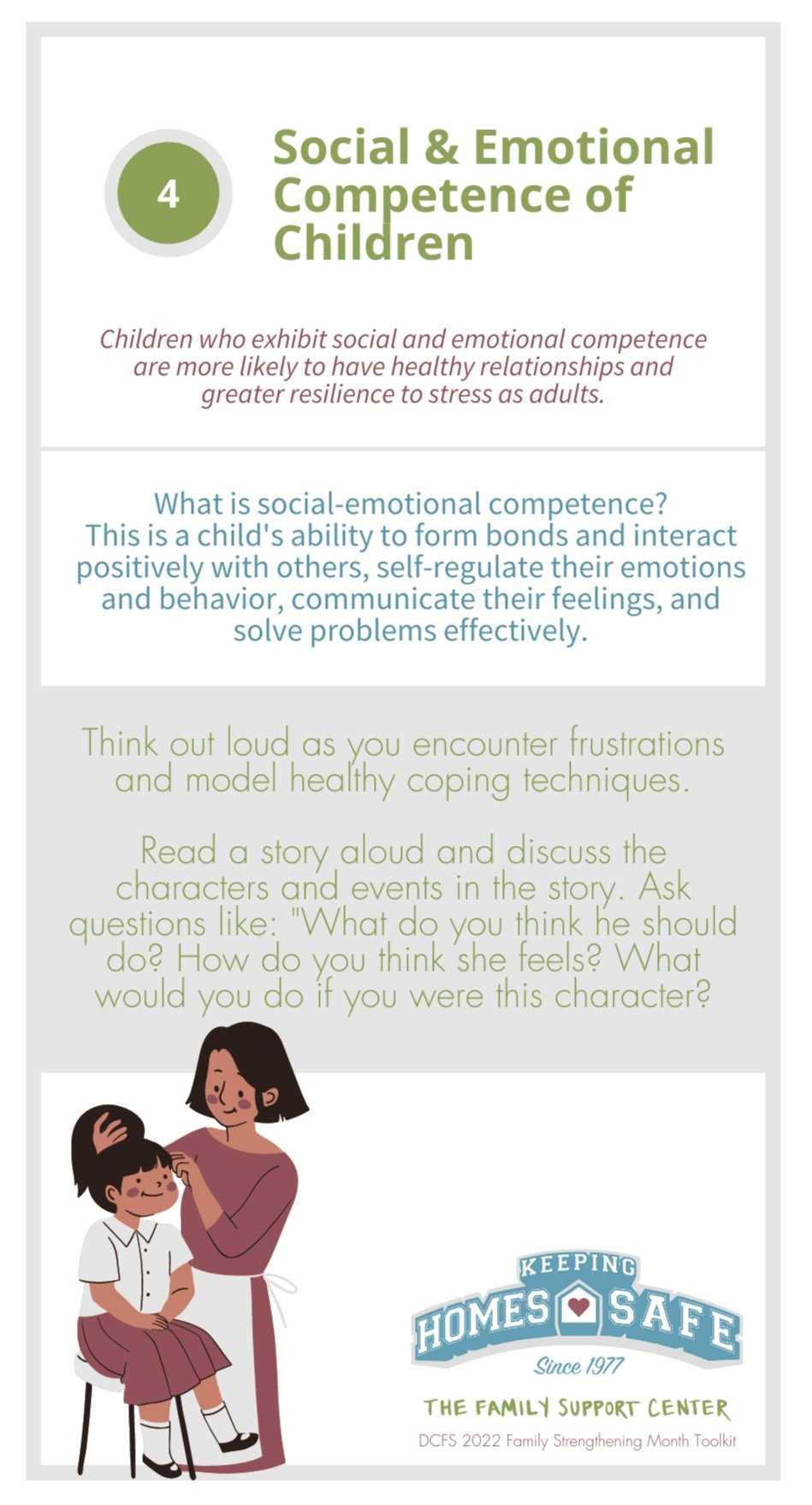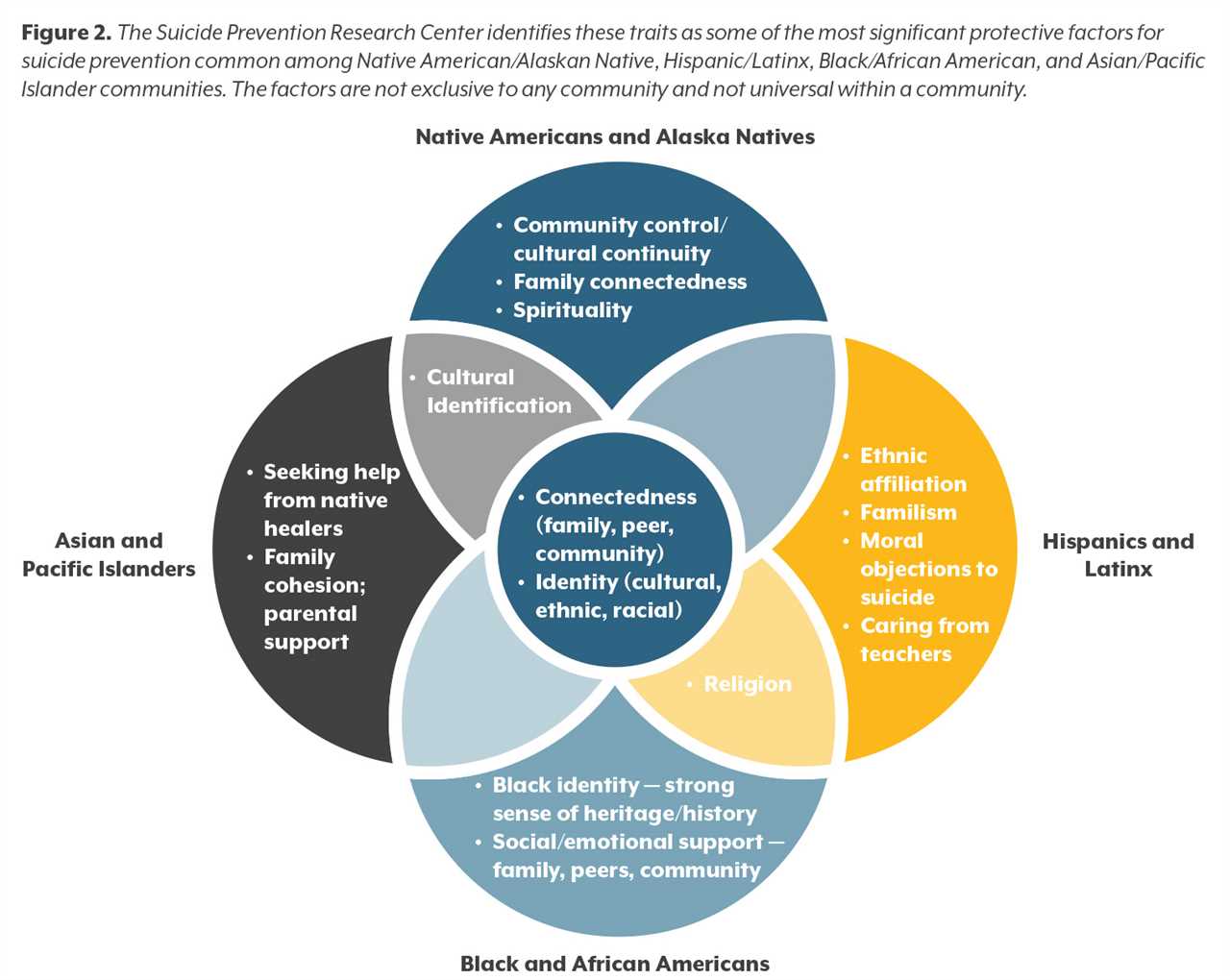
In today's fast-paced and demanding world, stress has become a constant companion for many individuals. Whether it's due to work pressure, personal challenges, or unexpected life events, stress can take a toll on our mental and physical well-being. However, it's important to remember that resilience is not something we are born with; it's a skill that can be developed and strengthened over time.
There are several factors that can help increase resilience in stressful situations. The first factor is having a strong support system. Having people who care about us and are there to lend a helping hand or a listening ear can make a world of difference. Whether it's family, friends, or a support group, knowing that we are not alone can provide a sense of comfort and strength.
The second factor is maintaining a positive mindset. While it's natural to experience negative emotions in stressful situations, it's important to focus on the positives as well. Cultivating gratitude and practicing self-compassion can help shift our perspective and increase our resilience. By acknowledging our strengths and achievements, we can build a foundation of resilience that will carry us through difficult times.
The third factor is developing effective coping strategies. When faced with stress, it's crucial to have healthy and adaptive ways to manage it. This can include exercise, meditation, deep breathing, or engaging in hobbies and activities that bring joy and relaxation. By finding what works best for us individually, we can build a toolbox of coping strategies that will support our resilience.
The fourth and final factor is maintaining a sense of purpose and meaning in life. Having a clear sense of what is important to us and what gives our lives meaning can provide a sense of direction and motivation. This can be achieved through setting goals, pursuing passions, or engaging in activities that align with our values. By staying connected to our purpose, we can find the strength to overcome challenges and increase our resilience.
In conclusion, resilience is a valuable skill that can help us navigate through stressful situations with strength and grace. By cultivating a strong support system, maintaining a positive mindset, developing effective coping strategies, and staying connected to our sense of purpose, we can increase our resilience and thrive in the face of adversity.
Understanding Resilience

Resilience is the ability to bounce back and adapt in the face of adversity or stressful situations. It is a protective factor that can help individuals cope with and overcome challenges. Research has shown that there are several factors that can increase resilience in individuals, allowing them to better navigate and manage stress.
One of the key protective factors that contribute to resilience is social support. Having a strong network of friends, family, and other supportive individuals can provide a buffer against stress. These relationships can offer emotional support, practical assistance, and a sense of belonging, all of which can help individuals cope with and recover from stressful situations.
Another important protective factor is a positive mindset. Having a positive outlook and the ability to reframe negative situations can increase resilience. This involves focusing on strengths and finding meaning and purpose in difficult experiences. Cultivating gratitude and practicing self-compassion can also help individuals build resilience and bounce back from stress.
Additionally, problem-solving skills and effective coping strategies are crucial protective factors for resilience. Being able to identify and address problems, as well as adapt to changes, can enhance an individual's ability to navigate stressful situations. Developing healthy coping mechanisms, such as exercise, mindfulness, and seeking professional help when needed, can also contribute to increased resilience.
Lastly, self-care plays a vital role in building resilience. Taking care of one's physical, emotional, and mental well-being is essential for managing stress and increasing resilience. This includes getting enough sleep, eating a balanced diet, engaging in activities that bring joy and relaxation, and practicing self-care routines that promote overall well-being.
In conclusion, understanding resilience is important in order to effectively navigate and manage stress. By recognizing the protective factors that can increase resilience, individuals can develop strategies and practices that promote their ability to bounce back and adapt in the face of adversity.
What is Resilience?

Resilience is the ability to bounce back and adapt in the face of stress, adversity, or trauma. It is a protective factor that can help individuals increase their ability to cope with difficult situations and maintain their well-being.
When faced with stress, resilience allows individuals to maintain a positive outlook, find ways to problem solve, and seek support from others. It is not about avoiding or eliminating stress, but rather about developing the skills and mindset to navigate through challenging circumstances.
There are several factors that contribute to resilience. One important factor is having a strong support system. This can include family, friends, or other trusted individuals who can provide emotional support and practical assistance when needed.
Another factor is having a sense of purpose or meaning in life. This can involve having goals and aspirations, and finding a sense of fulfillment in pursuing them. It can also involve finding meaning in difficult experiences and using them as opportunities for growth and learning.
Resilience is also linked to having good problem-solving skills and the ability to adapt to change. This involves being able to identify and evaluate different options, make decisions, and take appropriate action. It also involves being flexible and open to new ideas and perspectives.
Finally, self-care is an important factor in resilience. This includes taking care of one's physical, emotional, and mental well-being. Engaging in activities that promote relaxation, self-reflection, and self-care can help individuals build resilience and maintain their overall health and well-being.
In summary, resilience is the ability to bounce back and adapt in the face of stress. It is a protective factor that can be developed and strengthened through various factors such as having a strong support system, a sense of purpose, good problem-solving skills, and practicing self-care.
Importance of Resilience in Stressful Situations
Resilience plays a crucial role in protecting individuals from the negative effects of stress and increasing their ability to cope with challenging situations. In today's fast-paced and demanding world, stress has become a common occurrence, and having the ability to bounce back and adapt is more important than ever.
Resilience acts as a protective factor, shielding individuals from the harmful impact of stress. It helps them maintain a positive mindset, regulate their emotions, and navigate through difficult circumstances. By building resilience, individuals can develop the necessary skills and strategies to effectively manage stress and overcome obstacles.
There are four key factors that contribute to the development of resilience in stressful situations:
- Positive relationships: Having a support network of family, friends, and colleagues can provide emotional and practical assistance during times of stress. These relationships serve as a source of encouragement, advice, and comfort, helping individuals build resilience and face challenges head-on.
- Effective problem-solving skills: Resilient individuals possess the ability to identify problems, analyze them, and develop effective solutions. They approach challenges with a proactive mindset, seeking opportunities for growth and learning. This problem-solving ability empowers them to navigate through stressful situations with confidence.
- Self-care practices: Taking care of one's physical, mental, and emotional well-being is essential for building resilience. Engaging in activities that promote relaxation, such as exercise, meditation, and hobbies, can help reduce stress levels and increase resilience. Practicing self-care allows individuals to recharge and better cope with the demands of stressful situations.
- Optimistic outlook: Resilient individuals tend to have an optimistic outlook on life. They maintain a positive attitude, even in the face of adversity, and believe in their ability to overcome challenges. This positive mindset enables them to approach stressful situations with confidence and find solutions instead of becoming overwhelmed.
In conclusion, resilience is of utmost importance in stressful situations. It acts as a protective shield, helping individuals increase their ability to cope with stress and navigate through challenging circumstances. By cultivating positive relationships, developing effective problem-solving skills, practicing self-care, and maintaining an optimistic outlook, individuals can enhance their resilience and thrive in the face of stress.
Factor 1: Social Support

Social support is a protective factor that can significantly increase resilience in stressful situations. Having a strong network of friends, family, and community can provide emotional, practical, and informational support, which can help individuals cope with stress and overcome challenges.
When facing stress, having someone to talk to and share your feelings with can make a big difference. Social support can provide a sense of belonging and validation, making individuals feel understood and less alone in their struggles. This support can also help individuals gain different perspectives and advice, which can broaden their understanding and provide new solutions to their problems.
In addition to emotional support, social support can also provide practical assistance. Friends, family, and community members can offer help with tasks, such as childcare, cooking, or running errands, which can alleviate some of the stress and responsibilities during challenging times.
Furthermore, social support can provide informational support, which can help individuals gain knowledge and resources to better navigate stressful situations. This can include advice on how to access professional help, information about available support services, or guidance on coping strategies.
Overall, social support is one of the four protective factors that can significantly boost resilience in stressful situations. By fostering strong connections and relationships, individuals can benefit from emotional, practical, and informational support, which can help them better cope with stress and overcome challenges.
Building a Strong Support Network

In times of stress, having a strong support network can greatly increase resilience and help individuals cope with difficult situations. A support network consists of individuals who provide emotional, practical, and social support, offering a sense of belonging and understanding.
One of the key protective factors in building resilience is having a network of reliable and trustworthy people who can offer guidance, advice, and a listening ear. These individuals can be friends, family members, colleagues, or even support groups or therapists.
A strong support network can help individuals navigate through stressful situations by providing different perspectives and insights. They can offer reassurance, empathy, and encouragement, reminding individuals that they are not alone in their struggles.
Moreover, a support network can also provide practical assistance, such as helping with daily tasks, offering childcare, or providing transportation. This can alleviate some of the stress and allow individuals to focus on self-care and finding solutions to their challenges.
It is important to actively cultivate and nurture a support network by investing time and effort into building and maintaining relationships. This can be done by reaching out to friends and family regularly, participating in social activities, and joining community groups or organizations.
Additionally, it is crucial to communicate openly and honestly with members of the support network, expressing needs and concerns. This allows others to better understand how they can provide help and support.
In conclusion, building a strong support network is a protective factor that can significantly enhance resilience in the face of stress. By surrounding oneself with caring and supportive individuals, individuals can find comfort, guidance, and practical assistance, ultimately increasing their ability to cope with challenging situations.
Benefits of Social Support in Resilience
Social support is one of the four protective factors that can significantly increase resilience in stressful situations. When individuals have a strong network of supportive relationships, they are more likely to bounce back from adversity and cope effectively with challenges.
Firstly, social support provides emotional comfort and reassurance during difficult times. Having someone to talk to, share feelings with, and receive empathy from can alleviate stress and promote a sense of well-being. Knowing that there are people who care about you and are willing to listen can boost self-esteem and confidence, making it easier to navigate through tough times.
In addition to emotional support, social support also offers practical assistance. Friends, family members, or community resources can provide help with tasks or responsibilities that may become overwhelming during stressful situations. Whether it's lending a helping hand with childcare, running errands, or offering financial support, this practical assistance can alleviate the burden and allow individuals to focus on their own well-being and resilience-building.
Furthermore, social support fosters a sense of belonging and connectedness. Engaging in social activities, participating in group discussions or support groups, and maintaining strong relationships can create a sense of community and belongingness. This, in turn, can provide a sense of purpose and meaning, which are essential for resilience. Knowing that one is not alone in their struggles and that there are others who have gone through similar experiences can instill hope and motivation to overcome challenges.
Lastly, social support can provide individuals with valuable resources and information. Through their social networks, individuals can access advice, guidance, and knowledge that can help them navigate through stressful situations more effectively. Whether it's seeking professional advice or tapping into the wisdom of experienced individuals, these resources can contribute to problem-solving, decision-making, and ultimately, resilience.
In conclusion, social support plays a crucial role in building resilience. It offers emotional comfort, practical assistance, a sense of belonging, and access to valuable resources. By nurturing and maintaining strong social connections, individuals can enhance their ability to bounce back from adversity and thrive in the face of stress.
Factor 2: Positive Thinking

Positive thinking is a crucial protective factor that can significantly increase resilience in stressful situations. When faced with challenges and adversity, having a positive mindset can make a world of difference in how we cope and overcome difficulties.
Resilience is the ability to bounce back and adapt in the face of adversity. It is not about avoiding stress or pretending that everything is perfect, but rather about developing the mental and emotional strength to navigate through tough times.
Positive thinking plays a vital role in building resilience because it helps to reframe our perspective on stress and challenges. Instead of dwelling on the negative aspects, positive thinking allows us to focus on the potential for growth and learning in difficult situations.
By cultivating a positive mindset, we can train ourselves to see setbacks as opportunities for personal development. This mindset shift enables us to approach stressful situations with a proactive and solution-oriented mindset, rather than feeling overwhelmed or defeated.
Positive thinking also involves cultivating self-compassion and self-belief. It is about acknowledging our strengths and capabilities, and having confidence in our ability to overcome challenges. When we believe in ourselves and our resilience, we are more likely to persevere and find creative solutions to problems.
Furthermore, positive thinking can have a ripple effect on our overall well-being. It can improve our mood, reduce stress levels, and enhance our overall mental and emotional health. When we approach challenges with a positive mindset, we are better equipped to manage stress and maintain a sense of balance and optimism.
In conclusion, positive thinking is a powerful protective factor that can significantly increase resilience in stressful situations. By cultivating a positive mindset, we can reframe our perspective on challenges, build confidence in our abilities, and navigate through adversity with strength and optimism.
Developing a Positive Mindset
In order to increase resilience in stressful situations, it is important to develop a positive mindset. A positive mindset can help individuals cope with stress and overcome challenges more effectively. Here are four factors that can contribute to developing a positive mindset:
1. Self-awareness: Being aware of one's own thoughts, emotions, and reactions is crucial in developing a positive mindset. By understanding oneself better, individuals can identify negative thinking patterns and replace them with more positive and optimistic thoughts.
2. Gratitude: Practicing gratitude can significantly impact a person's mindset. Taking the time to acknowledge and appreciate the good things in life, even in the midst of stress, can help shift focus from negative to positive aspects.
3. Positive self-talk: The way individuals talk to themselves can greatly influence their mindset. Engaging in positive self-talk, such as affirmations and encouraging statements, can help build resilience and boost confidence in stressful situations.
4. Social support: Surrounding oneself with a strong support system can contribute to a positive mindset. Having trusted friends and family members to lean on during difficult times can provide comfort, encouragement, and perspective.
In conclusion, developing a positive mindset is essential in increasing resilience in stressful situations. By cultivating self-awareness, practicing gratitude, engaging in positive self-talk, and seeking social support, individuals can build a strong foundation for a positive mindset and better navigate through challenging times.
The Power of Positive Thinking in Resilience

In times of stress, having a positive mindset can be a powerful protective factor in building resilience. Resilience refers to the ability to bounce back from difficult situations, and it plays a crucial role in maintaining mental and emotional well-being. By cultivating a positive outlook, individuals can increase their resilience and better navigate through challenging times.
Positive thinking involves focusing on the good aspects of a situation, rather than dwelling on the negative. It does not mean ignoring or denying the existence of stress or difficulties, but rather choosing to approach them with a constructive mindset. By reframing negative thoughts and beliefs, individuals can build a more resilient mindset.
Positive thinking can help individuals increase their resilience in several ways. Firstly, it can enhance problem-solving skills. When faced with a stressful situation, individuals with a positive mindset are more likely to approach it as a challenge rather than a threat. This shift in perspective allows them to think creatively and find effective solutions.
Furthermore, positive thinking can boost emotional well-being. Stressful situations can often lead to negative emotions such as anxiety, fear, and sadness. By maintaining a positive mindset, individuals can counteract these negative emotions and cultivate feelings of hope, optimism, and gratitude. This emotional resilience enables individuals to better cope with stress and bounce back more quickly.
Positive thinking also has physical benefits. Studies have shown that individuals with a positive outlook on life have better overall health and a stronger immune system. This is because positive thinking reduces the harmful effects of stress on the body, such as inflammation and increased cortisol levels. By reducing the impact of stress, individuals can better protect their physical health and increase their resilience.
In conclusion, positive thinking is a powerful protective factor that can greatly increase resilience in stressful situations. By cultivating a positive mindset, individuals can enhance problem-solving skills, boost emotional well-being, and improve physical health. Incorporating positive thinking into daily life can help individuals navigate through difficult times with strength and resilience.
Factor 3: Coping Skills

Coping skills are an essential part of building resilience in stressful situations. They are the strategies and techniques that individuals use to manage and overcome adversity. Developing effective coping skills can greatly increase an individual's ability to bounce back from difficult experiences and maintain their mental and emotional well-being.
There are several coping skills that can be helpful in boosting resilience. One of the most important is the ability to regulate emotions. This involves recognizing and understanding one's own emotions, as well as finding healthy ways to express and process them. By learning how to effectively manage emotions, individuals can prevent them from overwhelming and negatively impacting their ability to cope with stress.
Another coping skill that can increase resilience is problem-solving. This involves identifying the challenges or obstacles that one is facing and coming up with practical solutions to address them. By taking a proactive approach to problem-solving, individuals can regain a sense of control and confidence in their ability to handle difficult situations.
Additionally, building a strong support network is crucial for coping with stress. Having trusted friends, family members, or professionals to turn to for guidance and support can provide a valuable source of encouragement and advice. This network can also help individuals to see alternative perspectives and find new ways to cope with challenges.
Lastly, self-care is an important coping skill that should not be overlooked. Taking care of one's physical, mental, and emotional well-being is essential for building resilience. This can include activities such as exercise, getting enough sleep, practicing relaxation techniques, and engaging in hobbies or interests that bring joy and fulfillment.
In conclusion, coping skills are protective factors that can significantly increase resilience in stressful situations. By developing effective coping skills, individuals can better manage their emotions, problem-solve, build a support network, and practice self-care. These skills empower individuals to navigate adversity and bounce back stronger.
Identifying and Developing Coping Strategies
When faced with stressful situations, it is important to have protective factors in place to increase resilience. One such protective factor is the ability to identify and develop coping strategies.
Coping strategies are techniques or actions that individuals use to manage stress and maintain their well-being. By identifying and developing effective coping strategies, individuals can better navigate through difficult situations and build their resilience.
There are four key steps in identifying and developing coping strategies:
| 1. Awareness: | Recognize the signs of stress and understand how it affects you. This awareness will help you identify when you need to employ coping strategies. |
| 2. Self-reflection: | Take the time to reflect on your strengths, weaknesses, and previous experiences. This self-reflection will help you understand which coping strategies have worked for you in the past and which ones you may need to develop. |
| 3. Exploration: | Explore different coping strategies and techniques that align with your needs and preferences. This may include activities such as exercise, deep breathing, meditation, or seeking support from others. |
| 4. Practice: | Once you have identified coping strategies that work for you, practice implementing them in your daily life. Consistent practice will help you integrate these strategies into your routine and make them more effective in times of stress. |
It is important to remember that coping strategies may vary from person to person, and what works for one individual may not work for another. It is a process of trial and error to find the coping strategies that are most effective for you.
By identifying and developing coping strategies, individuals can proactively protect their well-being and increase their resilience in the face of stress. These strategies can provide a sense of control and empower individuals to navigate through challenging situations with greater ease.

I am Patrina de Silva, a psychologist and mental health blogger in Sri Lanka. After obtaining psychology degrees from the University of Colombo and Monash University, I returned home to work as a counselor while also starting the popular blog “Pressy but Happy” to provide advice on psychological issues. Over the past decade, my empathetic articles have made my blog a leading mental health resource in the country. In addition to writing, I maintain a private therapy practice, frequently volunteer counseling time, and conduct seminars, driven by my passion for destigmatizing mental illness and educating the public on the mind-body connection. I strive to be an influential voice in my field through my compassionate approach.
